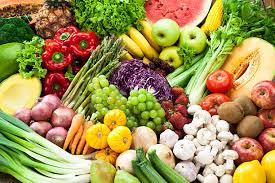An Australian study has confirmed what we already suspected: that eating nutrient poor foods results in poor academic outcomes, particularly in the areas of reading, numeracy and language (spelling, grammar and punctuation).
The study, only just published, was conducted in Adelaide with the participation of 26 schools and a total of 528 children aged 9 to 11 years, while the National Assessment Program – Literacy and Numeracy (NAPLAN) was used as the indicator of academic standard. NAPLAN is a standardised, compulsory annual assessment conducted in the second week of May for Grades 3, 5, 7 and 9.

The main finding was that children consuming more “noncore” foods such as cakes and donuts, pizzas and hamburgers, and soft drinks and energy drinks had a lower academic performance than those consuming “core” foods such as fruits and vegetables. Areas affected were language, numeracy and reading, but not writing.1 When NAPLAN domain scores were averaged, a 1 Standard Deviation higher “noncore” eating pattern was associated with a 12.6 point lower NAPLAN summary score, equating to an eight percent change in performance.1
Children eating healthy foods on less occasions and unhealthy foods more often during an average week had significantly lower NAPLAN scores than children with any other food combination pattern.1

However, they did suggest two hypotheses for the results that require further study. The first is that a certain threshold level of nutrients delivered via core foods is required for cognition, and any above this threshold does not deliver added benefits.1 Second is that beyond nutrients, additives in unhealthy foods such as preservatives and colourings that affect child behaviour, may also be impacting academic performance. They suggested that that this cannot be overlooked in the context of holistic dietary patterns.1
There was a suggestion that future studies also investigate the impact of parenting beliefs and practices around food, and in particular, the consumption of unhealthy foods.
If you are uncertain which foods are best for your child, please contact True Medicine on 07 55301863 for individualised nutritional guidance.
Reference
Pearce K, Golley R, Lewis L, Cassidy L, Olds T, Maher C. The Apples of Academic Performance: Associations Between Dietary Patterns and Academic Performance in Australian Children. J Sch Health. 2018;88(6):444-452. doi:10.1111/josh.12631.
